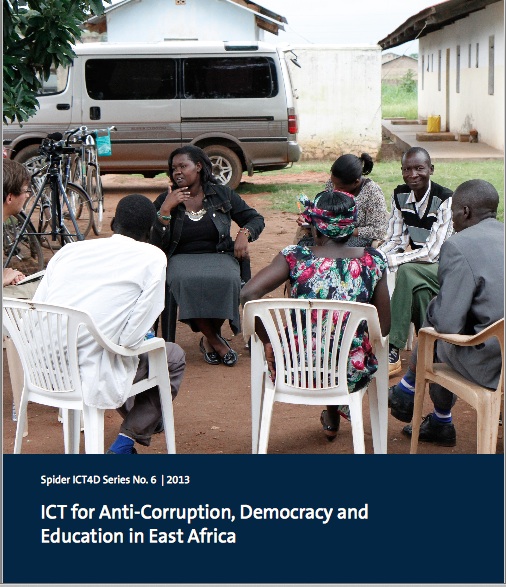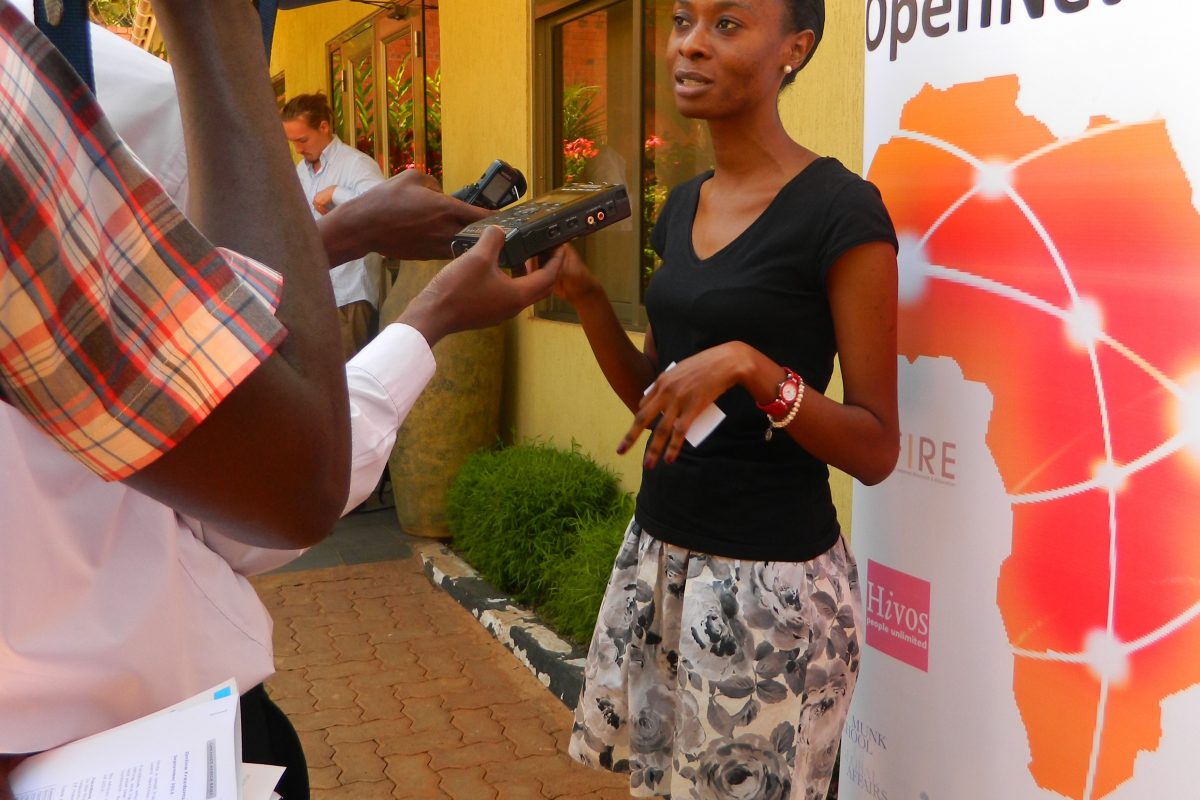In December 2013, the Kenya ICT Action Network (KICTANet) led online discussions on the proposed African Union Convention on Cyber Security (AUCC). The convention establishes a framework for cyber security in Africa “through organisation of electronic transactions, protection of personal data, promotion of cyber security, e-governance and combating cybercrime.”
Civil society and academia have raised concerns about some of the articles in the convention, which had earlier been expected to be signed in January 2014. Latest reports indicate that, at the earliest, the law could be signed in June this year.
The report on the discussions will be used by KICTANet and partners such as CIPESA to create awareness and lobby African governments to pass legislation and instruments that fully support the privacy of individuals and the fully enjoyment of their freedom of expression online.
The stated background to the convention is that the African Union is seeking ways to intensify the fight against cybercrime across the continent“in light of the increase in cybercrime, and the lack of mastery of security risks by African countries.”
Furthermore, the AU states that a major challenge for African countries is the lack of adequate technological security to prevent and effectively control technological and informational risks. As such, it adds, “African States are in dire need of innovative criminal policy strategies that embody States, societal and technical responses to create a credible legal climate for cyber security”.
The intentions may be legitimate but, as noted by the online discussions, some of the articles in the current version of the convention could be used to negate individuals’ privacy and their right to express themselves through online mediums.
Take, for example, Article III – 34. It states that AU member states have to “take necessary legislative or regulatory measures to set up as a penal offense the fact of creating, downloading, disseminating or circulating in whatsoever form, written matters, messages, photographs, drawings or any other presentation of ideas or theories of racist or xenophobic nature using an a computer system.”
How does this clause balance with the fundamental right to freedom of expression? Experts argue that this clause is problematic as it requires a measure of truth, which is hard to actually legislate or determine owing to the relativity of truth. They add that this sort of law would likely be unenforceable.
The discussion noted that although African countries needed legal framework on cybercrime, the current proposals need numerous amendments. The discussions also noted a need for the African Union Commission to engage with civil society to draw up progressive and enforceable laws. However, civil society had the added task of creating awareness and capacity among citizens on cyber security and the need to uphold freedoms of expression online.
These discussions were conducted on multiple lists of KICTANet and the Internet Society (ISOC) Kenya and on the I-Network and ISOC Uganda ists moderated by the Collaboration on International ICT Policy in East and Southern Africa (CIPESA), from 25 – 29, November 2013. They were also shared through numerous pan-Africa and global lists on ICT policy and online freedom.
Download the full discussions report here.
New Spider Research Publication on ICT4D in East Africa
The publication “ICT for Anti-corruption, Democracy and Education in East Africa” is the first product of the Swedish Programme for ICT in Developing Region (Spider)’s Research Related to Projects initiative which was devised and first implemented in 2012.
Connecting research directly to Spider supported projects aims to establish a closer connection between ICT4D research and ICT4D practice. The support allows ICT4D researchers in Sweden, in collaboration with researchers and practitioners in partner countries, to carry out research on ongoing ICT4D projects. This has generated research that can contribute more directly to development work, and provide a substantial contribution to poverty reduction and other development goals. The publication covers three thematic areas: anti-corruption, democracy and education. The six contributions span from ethnographic descriptions and analyses to explorations of collaborative design and evaluation of the achievement of set capacity building goals from the capability approach.
The volume is edited by Dr Katja Sarajeva, Program Manager at Spider.
Download the publication here.
CIPESA 2014 Projects
ICT4Democracy– iParticipate Uganda. This project has support from Spider to October 2014 and from Sida to December 2014. Activities will include documenting and publicising the benefits of open governance to citizens and the media; training of media and civil society in the use of ICT tools to promote citizen participation; provision of support to grassroots public access centres; policy analysis on Kenya, Tanzania and Uganda; research on ICTs and governance; and research dissemination.
Coordination of the ICT4Democracy in East Africa Network. With funding from Sida (January 2014-December 2014), CIPESA will manage this project which involves the disbursement of funds for the activities of the following partners: the Commission for Human Rights and Good Governance (Tanzania), iHub Research (Kenya), the Kenya Human Rights Commission, Women of Uganda Network, Toro Development Network, Transparency International Uganda, and CIPESA.
Promoting internet freedoms: This project continues from 2013. It has support from Hivos (January and February 2014), and from the University of Toronto (January 2014-October 2014). Activities will include finalising research on internet freedoms policies and practices in Burundi, Ethiopia, Kenya, Rwanda, South Africa, Tanzania, and Uganda; documenting internet rights violations and maintenance of the www.opennetafrica.org portal as the one-stop resource on online freedoms in Africa.
Leveraging Open Data and the Right to Information to Promote Service Delivery: The purpose of the project is to empower citizens in East Africa to use the RTI law to lodge requests and document their experiences through the use of Information and Communication Technologies (ICTs). The project also aims to undertake awareness-raising and network building activities to promote the right to information in Kenya, Uganda and Tanzania. The work is supported by the Open Society Institute from January 2014 to December 2014.
Internet Rights in Uganda: Challenges and Prospects Workshop Report
The Collaboration on International ICT Policy in East and Southern Africa (CIPESA, www.cipesa.org) in conjunction with Unwanted Witness Uganda (www.unwantedwitness.or.ug) on November 28, 2013 organised a workshop on promoting internet rights in Uganda. The workshop aimed to create awareness among civil society, netizens, and the media in Uganda on how policy and practice affect internet freedoms in the country. The workshop also sought to draw up strategies for network building and advocacy to promote and protect online freedoms in Uganda.
Download the workshop report here.
Q&A: Uganda Government Develops Social Media Guidelines
The internet and indeed social media plays a key role in improving communication between citizens, government-to-government interactions and at government-to-citizen level. Social media, such as Facebook, Twitter, YouTube, Instagram and MySpace, has the potential to improve governance and democracy practices.
Accordingly, the Uganda government through the National Information Technology Authority Uganda (NITA-U) has developed guidelines to “to facilitate secure usage of social media (Facebook and Twitter etc.) for efficient exchange of information across Government Ministries, Departments and Agencies (MDAs) as well as improving effectiveness of communication, sharing of information and open engagement and discussions with the public.”
On November 28, 2013 Leonah Mbonimpa, the Corporate Communications Officer at NITA-U spoke to CIPESA about the thinking behind the guidelines.
Q. What is the background to developing these guidelines?
A. Government has decided to utilise new channels to communication such as social media to communicate to citizens and give timely responses to emerging issues. In this vein, NITA-U was requested to develop guidelines to help government agencies to embrace social media while maintaining the same level of decorum as with traditional media.
Q. Why did the government find it necessary to draw up these guidelines?
A. Traditionally, Government agencies have been communicating through accounting officers such as Permanent Secretaries. The advent of new media channels and the quest for speedy provision of information has necessitated the shift from traditional approaches to more flexible ways of communicating, [such as] using social media. Given that social media is relatively new and comes with a higher degree of responsibility when communicating, it was necessary to provide guidelines for government agencies to ensure that we communicate [appropriately].
Q. What do the guidelines intend to achieve?
A. They intend to achieve uniformity in communicating and ensure appropriate consultation is made before posting government communication online.
Q. How is users’ privacy protected in these guidelines?
A. The guidelines do not infringe on user privacy. They only seek to standardise the government’s approach to communicating to citizens online.
Q. Are there other initiatives in place or under development by government to protect freedom of expression and privacy online.
A. NITA-U is in preparatory stages of drafting a Data Privacy bill which will eventually be enacted into law to comprehensively address privacy issues.
Further details about the guidelines are available here http://www.nita.go.ug/index.php/features/315-socialmediguide




